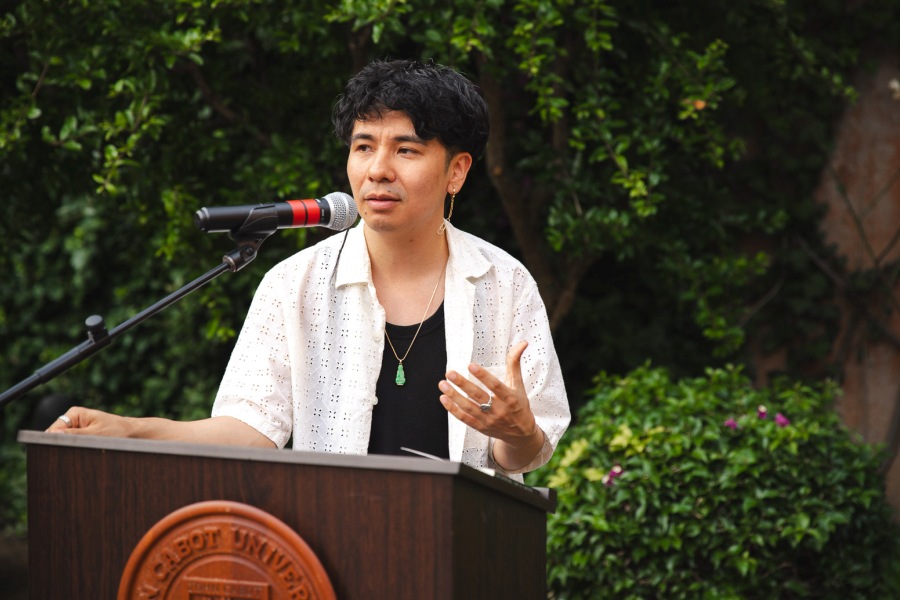Digital Delights and Disturbances Lecture Series Presents "De-Platformisation"
On February 25, John Cabot University welcomed Niels van Doorn, Sarah Gainsforth, and Simone Robutti for an online discussion of “De-Platformisation.” The talk was organized by the JCU Communications Department as part of the Digital Delights and Disturbances Lecture Series. In the past years, the series has hosted personalities like Harvard professor Lawrence Lessig, writer Paul B. Preciado and artist Antonia Hernández. The lecture was moderated by Communications professors Alberto Micali and Donatella Della Ratta.
The speakers discussed the topic of online platformisation, which is the establishment of technological infrastructures that manage production/participation and extract value from the unconscious exchange of data. Platforms establish themselves as neutral utilities and take advantage of this position to garner continuous value from what they manage. The phenomenon has become particularly relevant since the outbreak of COVID-19. The pandemic has enhanced platformisation, especially with infrastructures like AirBnB and Amazon.
Niels van Doorn is Assistant Professor of New Media and Digital Culture in the Department of Media Studies at the University of Amsterdam. He is currently working on a research project called Platform Labor. Platform Labor is a five-year-project, whose goal is to understand how digital platforms are affecting life in three cities: Amsterdam, Berlin, and New York City. Van Doorn’s team also conducts research on what platforms want and need. Results show that platforms want to obtain data, please and capture the user, and avoid responsibility. On the other hand, their goal is to operate through permissive regulations, while relying on a significant number of investors and labor.
Sarah Gainsforth is a freelance journalist and researcher. She first became interested in the issues of platformisation and de-platformisation while conducting research and collecting data on AirBnB in Rome. AirBnB was originally presented as a service that allowed people to have an extra income, and tourists to travel on a budget. However, Gainsforth’s goal was to go behind this narrative.
AirBnB has now become a highly-financialized platform. As such, it constitutes a potential threat to the economy of countries like Italy, where services like AirBnB have filled a gap in the system generated by the COVID-19 pandemic. Although the contribution offered by these platforms has proven useful, Gainsforth believes that if the government does not impose regulations, the consequences will be counterproductive after COVID-19. Her research has shown that the consequences of AirBnB are counterproductive for many communities. For example, touristification (when tourism combines with gentrification) can lead to unfair rents and urban marginality.
Simone Robutti is a Machine Learning Engineer. He is the coordinator of Gambe.ro and the creator of Tech Workers Coalition Italia. Robutti proposed platform cooperatives as an alternative to the potential threat of platforms like AirBnB. Platform cooperatives are businesses that rely on shared ownership by workers and users. Fairbnb.coop or CoopCycle are examples of such platforms. Robutti pointed out how Fairbnb could replace AirBnB in the vacation rental online marketplace. For Gainsforth, Fairbnb.coop is a brilliant idea, however, she pointed out that it will not substitute AirBnB until the latter platform is banned.






